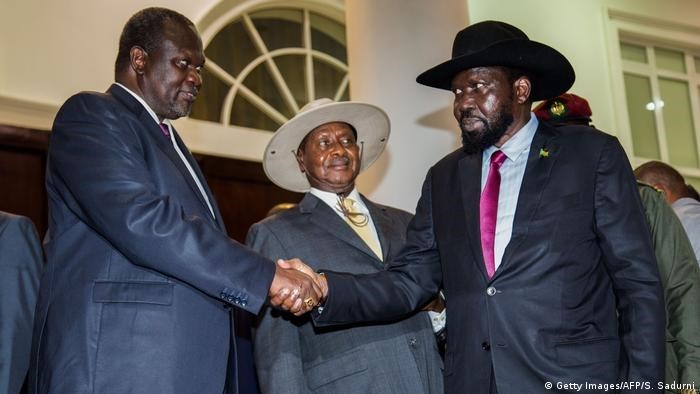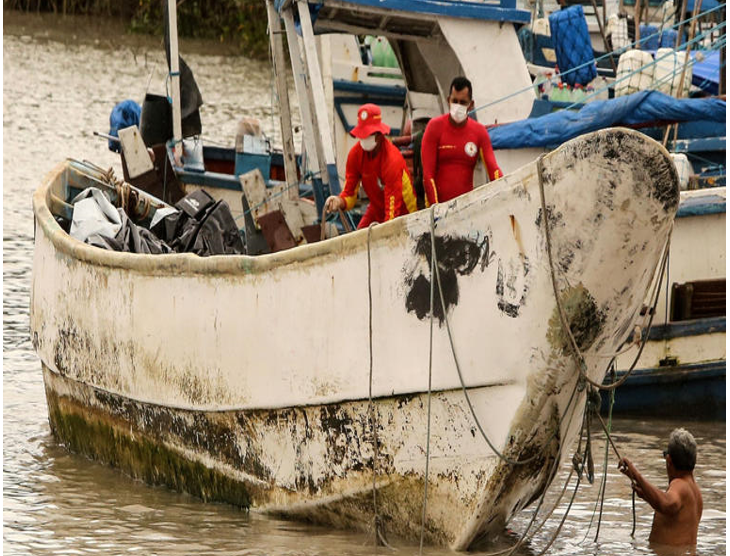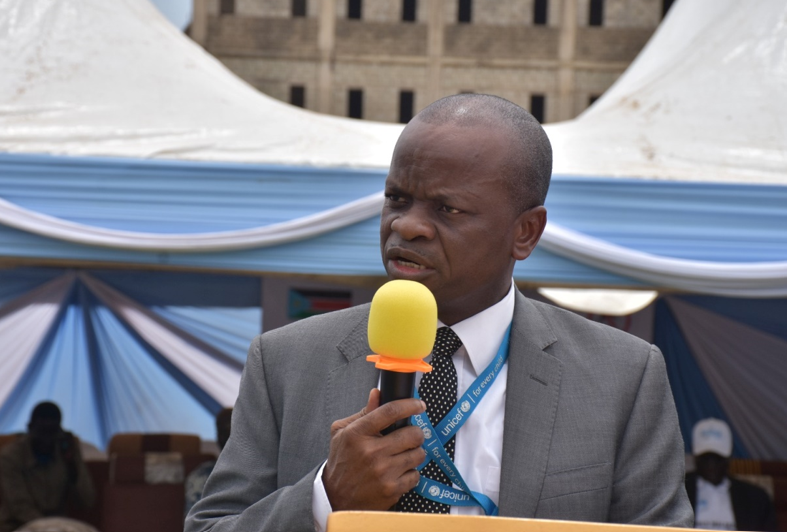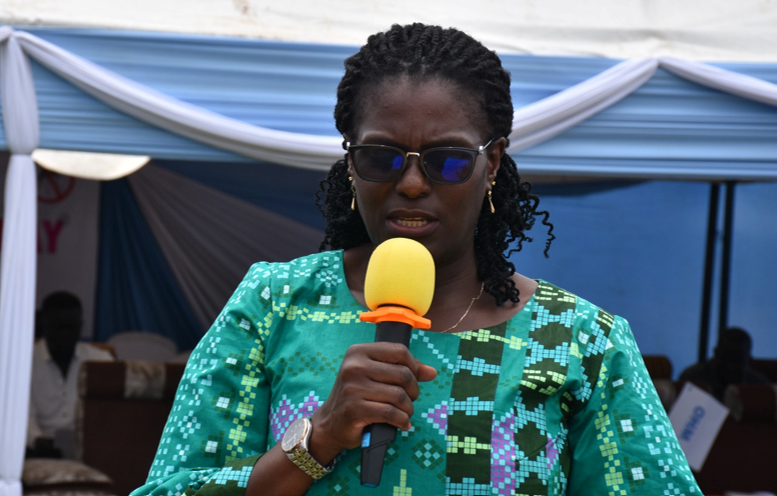Kiir, Machar differ on alleged lack of political space

Tension temporarily engulfed Freedom Hall on Thursday evening when President Salva Kiir and his First deputy Dr Riek Machar differed publicly over the alleged lack of political space in the country.
When he took the podium to address the gathering, First Vice President, Dr Riek Machar, claimed that most political parties were chocking from wedged political space and continued harassments from national police.
Machar then appealed to the president to address the issue, adding that political parties were not free to exercise freely express their ideologies to citizens. Machar appealed to the head of state to ‘do something’ on the situation.
“I think if we have a good political space, these political parties will resolve these differences. hope, Mr. President, in your statement, you will address this issue,” he said.
But without blinking an eyelid, Kiir turned down the proposal on the spot. “I will not make it,” he said in a swift response to Dr Machar who was still on the podium.
But Machar insisted that political will would be an important asset in ensuring that the outstanding issues are ironed out smoothly and that citizens would build trust in the national security service and the police.
“Mr President, in your statement, it would be good to guide the nation on political space. So that these security organs are not targeted by political parties,” Dr Machar added.
“We would like to see our national security loved by all. We would like to see our police protecting all. We would like to see these organs supported by serving our country.”
Last month, SPLM/A-IO Deputy Chairman and the First Deputy Speaker of Reconstituted Transitional National Legislative Assembly (R-TNLA), Nathanael Oyet raised a similar concern over what he called “shrinking political space.”
According to Oyet, a lack of political space to run their political rallies towards the election was lacking.
“It is the biggest challenge we need to fight for because we do not want an election that is not free, fair, and sham to take place in South Sudan,” he said.
“They are facing difficult challenges from the activities of national security, organized forces that exert impetus on civil liberties, political rights to association, and the rights of association.”
Yesterday, the president announced the extension of the transitional period for 24 months starting from February 22, 2023, until February 22, 2025, but with elections to be held in December 2024.


